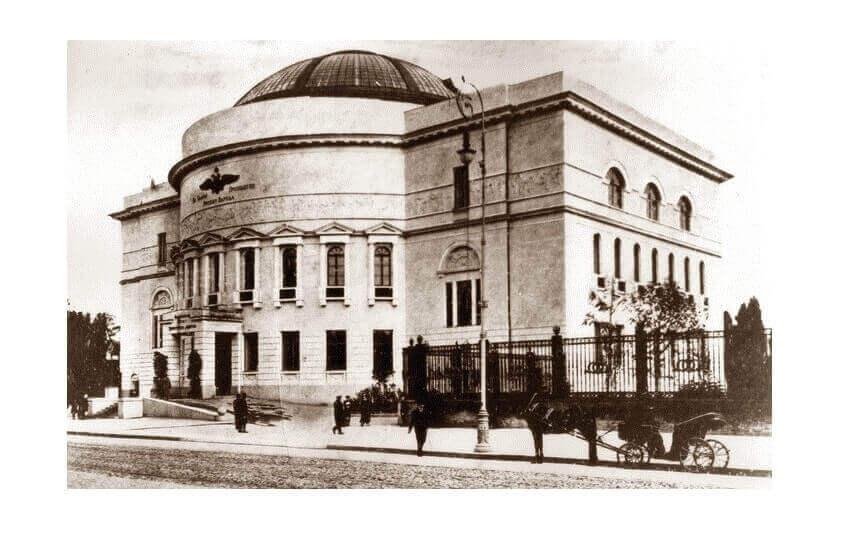On January 22, Ukrainians celebrate Unity Day. Researcher of Musuem "Jewish Memory and Holocaust in Ukraine" Candidate of Historical Sciences Olena Ishchenko reflects on the historical lessons of the events of the early 20 century and their relevance for us - contemporaries.
WHY ARE THE HISTORICAL LESSONS OF THE STRUGGLE FOR THE UKRAINIAN UNITY RELEVANT FOR 100 YEARS?
IV Universal of the Ukrainian Central Council. Declaration of independence of the UPR. January 22, 1919 - Act of Unification (Day of Unity).
On this day, January 22, 1918, the IV Universal of the Ukrainian Central Rada was proclaimed. Realizing the Ukrainian revolution as a multicultural phenomenon, we once again ask ourselves the question: why did the active Jewish community not support Ukrainian independence, which was proclaimed by the IV Universal?
After all, Jewish masses perceived the coming to power of the Bolsheviks in the autumn of 1917 quite negatively. Firstly, a large part of Jewish population was traditionally engaged in trade and handicrafts, so they were sensitive to the position of any government on the issue of private property. That is, for the vast majority of Jewish people, the red government was a direct threat. Secondly, the Bolsheviks did not hide their aggressive and atheistic position, which was not acceptable to Jews.
As for the political environment, only the Poale Zion party supported the October Revolution, and all other Jewish politicians opposed the overthrow of the Provisional Government. Representatives of Jewish parties in the Small Council voted for the III Universal, which proclaimed the creation of the Ukrainian People's Republic (UPR). But the IV Universal, which seemed to continue the logic of the previous one, was not supported by Jews. And this despite the fact that the text of the Universal contained confirmation of the law on national and personal autonomy, adopted two days earlier. Under this law, Ukrainian Jews received full personal freedom and the status of national and cultural autonomy, concentrated in their traditional public institutions (communities). Later, a separate Ministry of Jewish Affairs and the Jewish National Council were established. Yiddish was one of the official languages of the Ukrainian People's Republic, which was reflected even in the inscriptions on banknotes.
The reason for the rejection of Ukrainian independence can be seen in the fact that the escalation of political conflicts in late 1917 led to an escalation of pogroms initiated by peasant soldiers and declassed elements. Human life and dignity were rapidly depreciated. Instead, low instincts came to the surface, which were often covered by the slogans of anarchy or revolutionary expediency. The result was bloody murders, violations of private property rights, political intolerance, and legal nihilism. Of course, they smashed and robbed everyone, but Jews were "the luckiest".
Without receiving effective protection from the Central Council (and over time it rapidly lost the opportunity to defend even itself), Jews set out to organize their own self-defense. So, they did not forgive the young Ukrainian government for its helplessness, good intentions, not supported by strong will… Guided by the instinct of self-preservation, unwavering rationalism, Jews realized before others that the Central Council had little to decide, and its well-written laws - just were useless. In addition, the policy of Ukrainization did not gain popularity among Jewish people, they firmly adhered to Russian linguistic and cultural orientations.
The drift of radical Jewish youth to the Bolshevik ranks was contrary to the position of both traditional Jewish circles and Jewish political parties. However, the young fanatics, Jews only by origin, could not be stopped - the people split in two.
Ukrainians resented the Jews for not supporting the IV Universal and for the fact that some of them took part in anti-Ukrainian uprisings. All this fueled anti-Semitism: Ukrainians took revenge by organizing pogroms; Jews, on the other hand, escaped the pogroms under the red flags - the pendulum of violence shook more and more, universal values turned to ashes.
On the Unity Day, we think about the unity of all citizens of Ukraine. Let us be stronger with our solidarity, understanding of the historical lessons of centuries ago.

